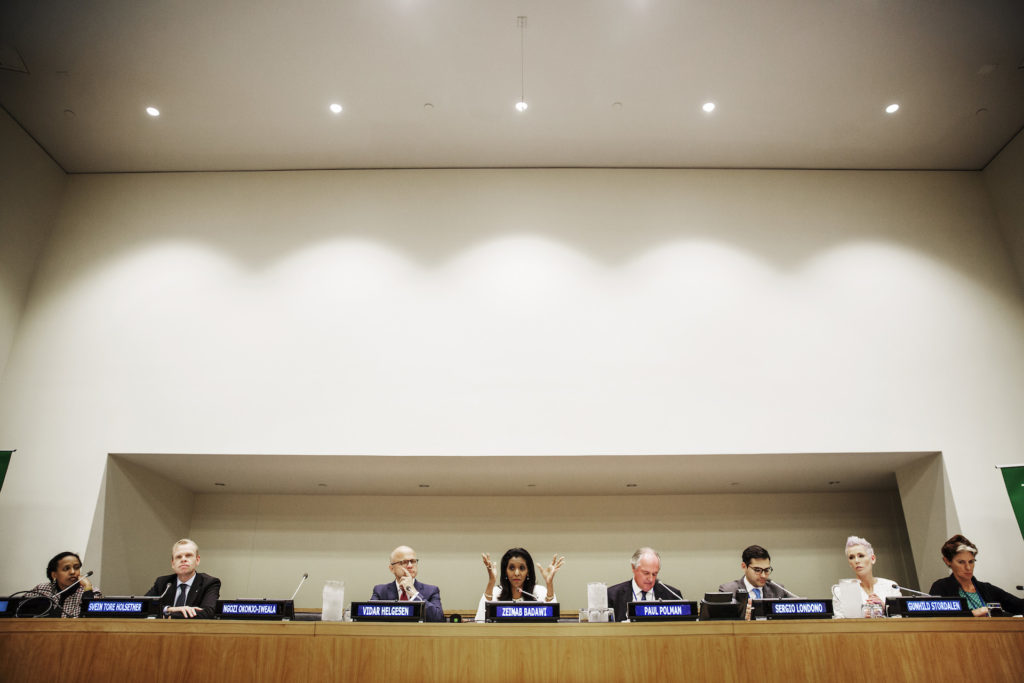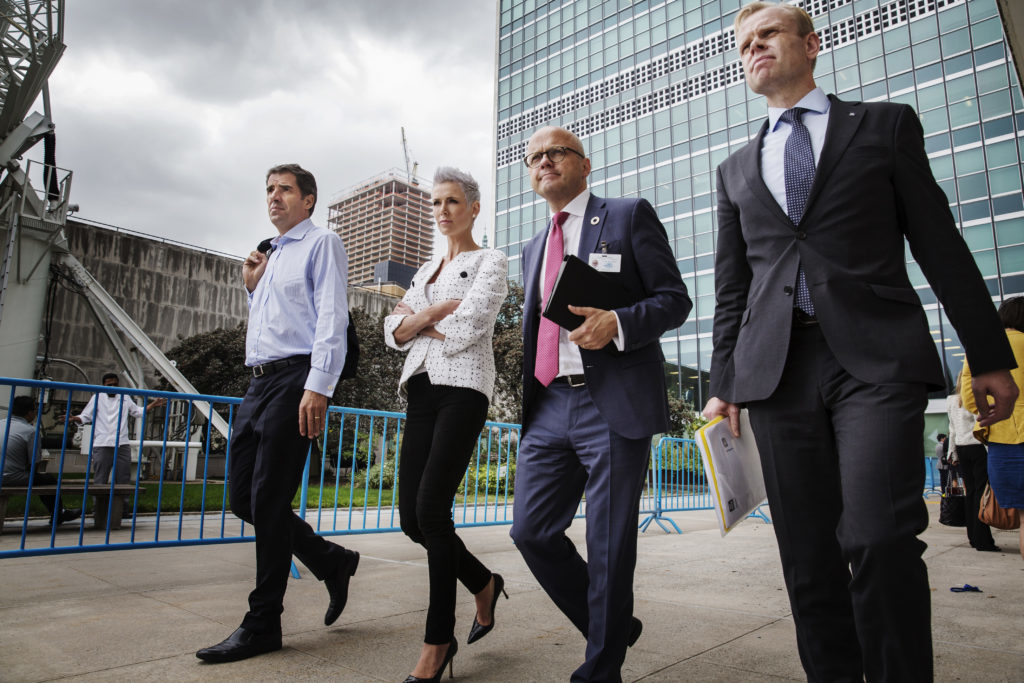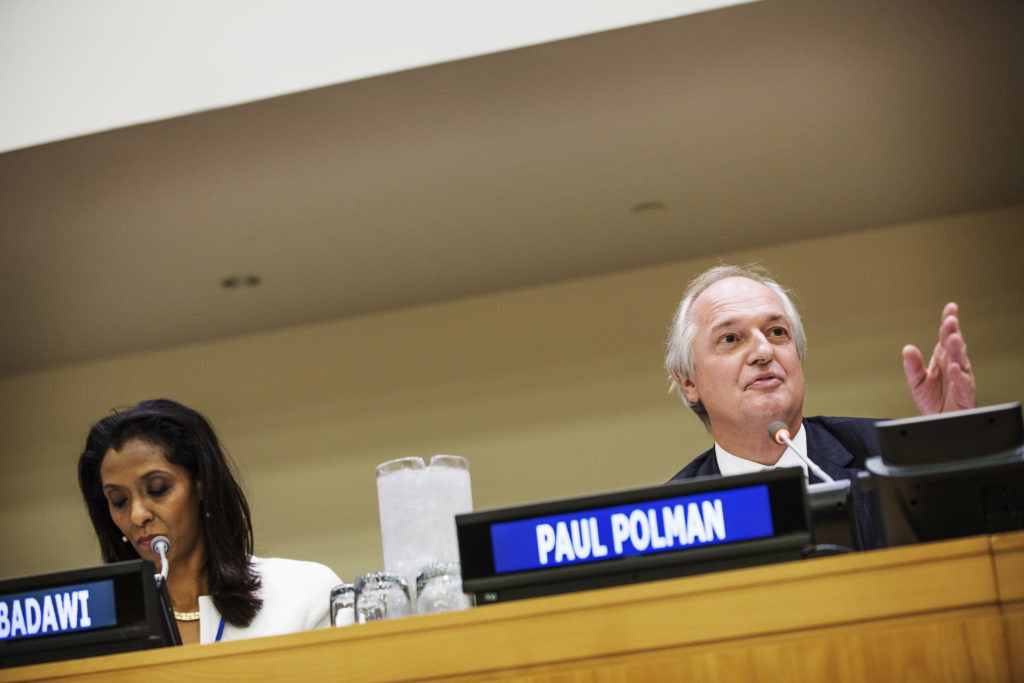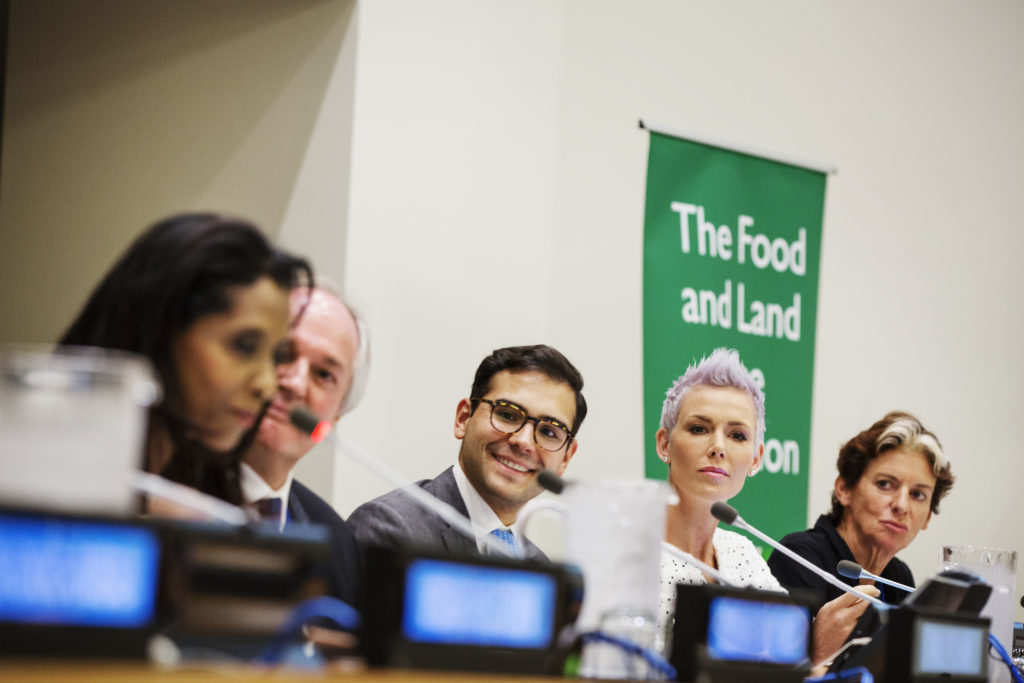
Today’s global food and land use systems are not fit for purpose. They are failing environmentally and socially, accounting for more than 25% of greenhouse gas emissions, eroding our natural capital, letting one in eight people go to bed hungry while a staggering one third of all food produced gets thrown away, and keeping close to 500 million rural farmers in poverty.
Pursuing business as usual is no longer an option. By 2050 the world will need to feed more than nine billion people, which will require producing 50% more food, putting unsustainable pressure on finite land and ocean resources.
In a bid to buck the trend, a new self-governing coalition composed of over 30 organizations, including the Business and Sustainable Development Commission, the UN Sustainable Development Solutions Network, the New Climate Economy, EAT Foundation, Yara International and Unilever, was established to transform the global food and land use systems. The new initiative was launched on Sept. 19 at the United Nations in New York, during UN General Assembly week.

“Today we seem to act as if there was a trade-off, that we have a choice between either feeding nine billion people or meeting our climate and biodiversity goals,” said Norwegian Minister of Climate and the Environment Vidar Helgesen at the launch of the Food and Land Use Coalition (FOLU). “The new food and land use economy is about ending this trade off that characterizes the current food system. Meeting any one of these goals will require us to meet them all.”
«Today we seem to act as if there was a trade-off, that we have a choice between either feeding nine billion people or meeting our climate and biodiversity goals»
– Vidar Helgesen, Norwegian Minister of Climate
Transforming the global food and land use systems is an ambitious goal that requires broad, cross-sectoral collaboration. Hence, FOLU is seeking to build a partnership between civil society, academia, the public and private sector at an unprecedented scale, bringing together actors working with forest, climate, food, biodiversity, as well as health.
“There are still too many uncoordinated efforts,” said Unilever CEO Paul Polman. “Some focus on nutrition, some on agriculture, some on forest protection, some on climate change. They’re all needed. But we say, why don’t we move from the common passion that we have, to an uncommon collaboration to make a big enough transformation, hopefully in time.”
FOLU will seek to develop global and national pathways to reach science-based targets for what a sustainable land-use system must look like by 2050. The challenge is to strike the right balance between competing priorities such as food production, protection of biodiversity and carbon sequestration. To accelerate progress, the coalition will develop a portfolio of business and financing opportunities to encourage investments and new business partnerships, for example between farmers and big data specialists.
«We say, why don’t we move from the common passion that we have, to an uncommon collaboration to make a big enough transformation, hopefully in time»
Paul Polman, Unilever CEO
According to a report published by the Business & Sustainable Development Commission in January 2017, sustainable business models could open economic opportunities worth up to USD12 trillion and increase employment by up to 380 million jobs by 2030. Many of these opportunities reside in the food and land use system, Polman said.
In order to facilitate policy reform and new business solutions at the national and local level, FOLU will be implementing a series of “action roadmaps” for achieving a viable food and land-use economy in several countries, including Colombia, Ethiopia and Indonesia.

“The food and land use approach I believe can make sustainable growth, better health and a planet in balance not only a possibility, but a reality,” Helgesen said. “And we desperately need it to become a reality as it is an economic and moral imperative.”
The 17 Sustainable Development Goals, adopted by all UN member states in 2015, set benchmarks for promoting economic prosperity, enhancing social inclusion and ensuring environmental sustainability by 2030. Like the Paris Climate Agreement signed in December of the same year, the goals recognize the central role of food systems. Transforming the food and land use systems presents a significant opportunity to achieve both the Paris Climate Agreement and the Sustainable Development Goals.
“The integrated nature of the SDGs requires a new approach,” said EAT President and Founder Gunhild A. Stordalen. “We won’t be able to deliver on the 2030 Agenda if we continue to work in silos. This is a unique opportunity to agree on a joint vision and create the plan that will take us there.”

To view the full session of the Food and Land Use Coalition launch at the United Nations, please click here.